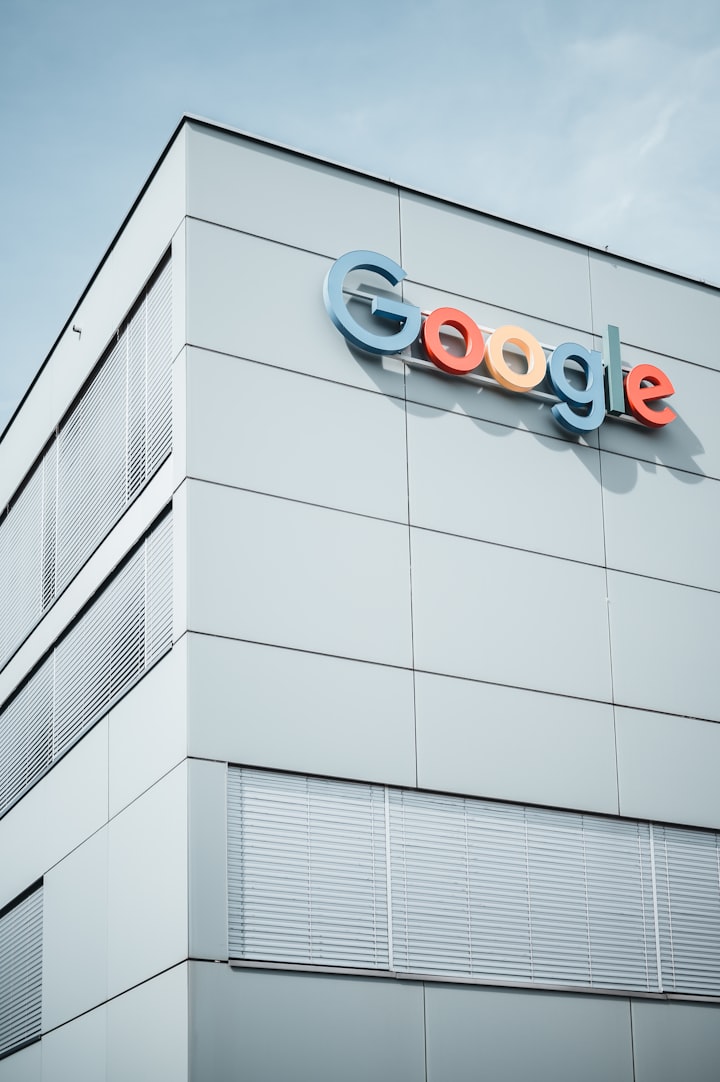The Rise of Google
How Google became the most dominant search engine

In vast landscape of the internet, one name reigns supreme: Google. But how did a project born out of a dissertation by two students evolve into a global behemoth constantly under the scrutiny of governments worldwide? Strap in for a wild ride through the tumultuous journey of Google's ascent to prominence.
The year was 1995 when Larry Page and Sergey Brin embarked on a mission to revolutionize online search. Their brainchild, initially dubbed "BackRub," aimed to gauge the importance of a website based on the number of links pointing to it—a concept that would later be known as PageRank. As they pitched their idea to various search companies, including Yahoo and AltaVista, they faced rejection after rejection.
Undeterred, Page and Brin decided to forge their own path, birthing what we now know as Google—a playful nod to the mathematical term "googolplex." Operating from a humble garage office at the home of an Intel manager named Susan Wojcicki (now CEO of YouTube), Google began to attract top talent, including the likes of Marissa Mayer and Urs Hölzle.
But the question remained: How would Google monetize its search engine? Initially exploring three revenue streams—licensing, hardware sales, and advertising—the company faced skepticism, even from within, regarding the viability of ads. Nevertheless, they forged ahead, pioneering a new approach to online advertising focused on user experience and targeted text-based ads.
Google's pivotal moment came in 2000 when it secured a deal with Yahoo to power its search, marking the beginning of its profitability. With newfound resources, Google embarked on a spree of acquisitions, snapping up Blogger, Applied Semantics (the precursor to Google AdSense), and Urchin (later integral to Google Analytics).
In 2005, Google made a landmark acquisition with the purchase of Android, laying the foundation for its dominance in the mobile market. The following year, YouTube joined the Google family, despite facing legal challenges akin to those that plagued Napster in its heyday.
As Google's influence grew, so did scrutiny from regulators. The acquisition of DoubleClick in 2007 drew the attention of the Federal Trade Commission, signaling the start of a complex relationship between Google and antitrust authorities.
Amidst partnerships with tech giants like Apple, Google's trajectory seemed unstoppable. Yet, tensions between the two escalated with the emergence of Android, culminating in the launch of the first Android phone, the HTC Dream.
Reflecting on Google's journey, one sees a company driven by innovation, resilience, and a relentless pursuit of excellence. From its humble origins to its status as a global powerhouse, Google's story is a testament to the transformative power of ideas.
But with great power comes great scrutiny. As Google faces accusations of monopolistic practices and regulatory fines, the debate rages on: Is Google a benevolent innovator or a monopolistic behemoth? Only time—and perhaps the courts—will tell.
As we navigate the ever-changing landscape of the digital age, one thing is clear: Google's influence is undeniable, its impact profound. Whether it's shaping how we search, connect, or consume information, Google remains at the forefront of technological innovation.
So, s we marvel at the towering legacy of Google, let us also deeply contemplate the far-reaching implications of its dominance. For in this transformative age of information, the immense power wielded by tech giants like Google carries with it an inherent responsibility to uphold the fundamental values of transparency, accountability, and fairness.
As we bid adieu to this exploration, let us make a solemn pledge to remain ever curious, perpetually informed, and, above all, unceasingly vigilant. And as we turn the page, who can say what revelations the next chapter in the enthralling saga of Google—and indeed, the internet as a whole—may bring to light?
If you enjoyed reading this article, do subscribe to my blogs! :)





Comments (2)
Hello, AI is permitted on Vocal. It is a Vocal policy that content created with AI is identified as such at the start of the story/article. Your article/story has many hallmarks of AI-assisted/generated content. You can find the details of the Vocal policy here: https://vocal.media/resources/an-update-from-vocal-on-ai-generated-content, Please amend your piece to be in compliance. If you are not a Vocal+ member you will need to contact Vocal here ([email protected]) and ask them to send your content back into your 'Drafts' where you can edit your story/article/poem. If you don’t correct this the content may be removed by Vocal and/or you may be deleted from the platform. This has been reported to Vocal.
Back rub then PageRank … quite and interesting article. The important point: their inherent responsibility to uphold the fundamental values of transparency, accountability, and fairness. As long as they do and continue to reinvent their products, and if they work, then GOOGLE- on!! 😀